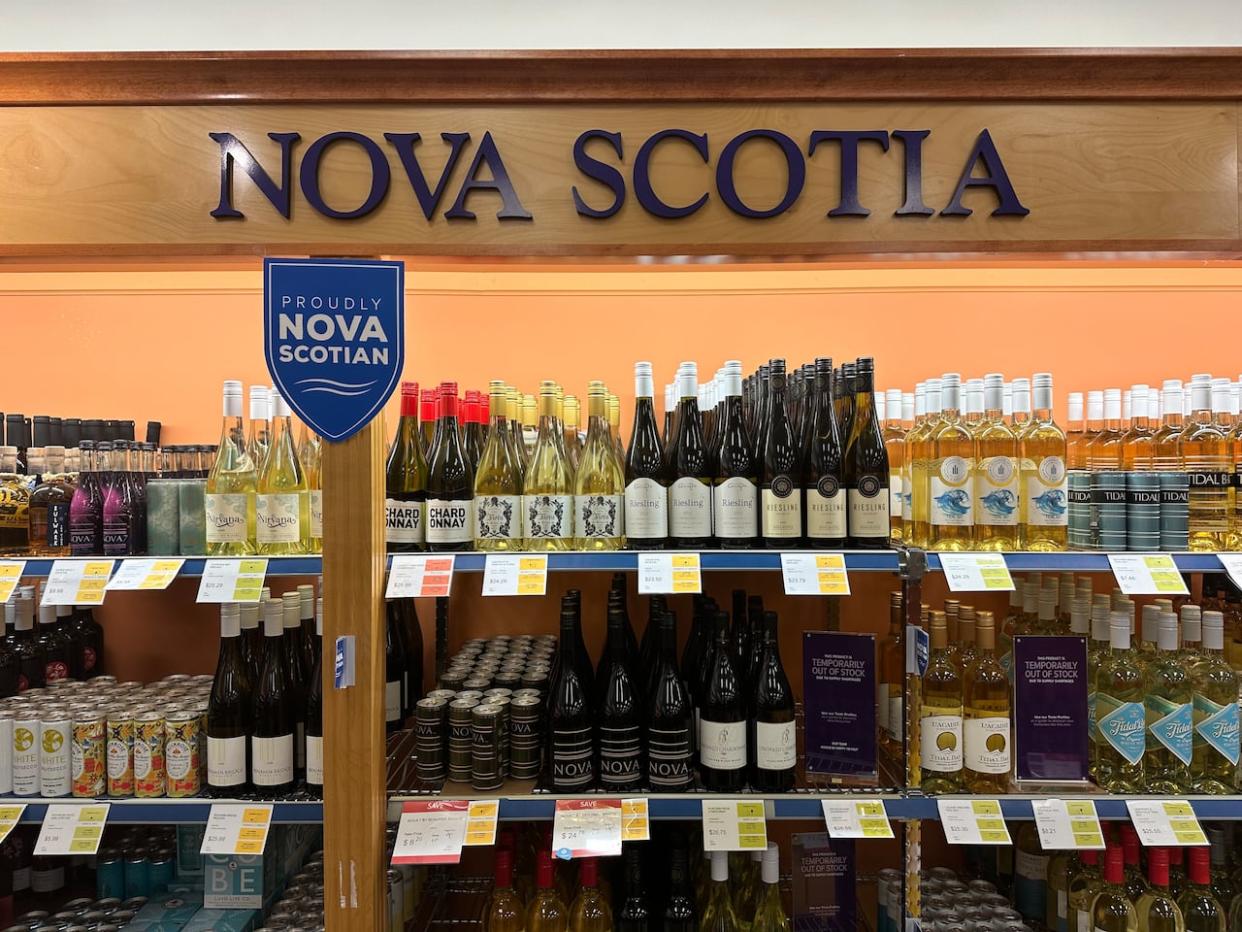Premier pushes back against criticism of new program for wine producers

Premier Tim Houston was on the defensive Tuesday following allegations by opposition politicians and an industry group that a new program to support commercial wine producers is the result of lobbying by a friend.
Speaking to reporters at Province House, Houston said it's his business to know entrepreneurs who employ people in the province, but he deflected questions about whether he is friends with Devonian Coast owner Carl Sparkes.
"As premier of the province, like, I can't even tell you guys how many kitchen tables I've sat at and how many doorsteps I've knocked on," he said.
"There's a million Nova Scotians. I love them all."
At issue is the new commercial wine support program, which farm wineries say they've been told would provide between $6 million and $12 million a year to companies that bottle wine in the province. Subsidizing the bottling companies to import cheaper grape juice and produce at higher volumes would mean commercial producers could charge less for their product, according to the farm wineries.
"It could have a catastrophic effect," Karl Coutinho, board chair of Wine Growers Nova Scotia and president of Avondale Sky Winery in Newport, said on Monday.
'It is literally open to everyone'
There are two commercial bottling operations in the province: Sparkes's Devonian, which also has three local wineries, and Ontario-based Peller Estates.
Although Houston said the new program is about being compliant with international trade laws following a complaint several years ago by Australia, he also said there is an opportunity for more wine to be bottled in the province.
The premier said 65 per cent of the wine on NSLC shelves is bottled elsewhere, including a large percentage that's bottled in Quebec.
"I think they should be bottled here. There's space for them here. I would want that business and that economic development here in this province."
The program is not exclusive to Devonian and Peller Estates, he said, and Houston encouraged other wineries with bottling capacity to scale up.
"It is literally open to everyone."
'Nothing but sour grapes'
Sparkes made a similar point during a telephone interview from Costa Rica.
"Anybody has the opportunity to play this game," he said. "Anybody."
Farm wineries, however, say the focus should be on supporting operations that grow grapes locally.
It is "very myopic, shortsighted and insular thinking to be looking at this in isolation about a few craft wineries who have their nose out of joint," said Sparkes.
His company represents 60 per cent of the Nova Scotia industry and Sparkes said he buys excess grapes every year whether he needs them or not because other wineries didn't have capacity to process them.
"Do you think I would do anything to harm our core business and our growers?"
Sparkes disputed the concern that the commercial wine support program would have negative effects for farm wineries and said it was "foolishness" to suggest it was created because of a friendship with the premier.
He would not directly say if he is friends with Houston.
"I'm friends with a lot of people. I'm a friendly guy. This is nothing but sour grapes."
'A really shocking thing to do'
The premier "doesn't get involved with matters like this," said Sparkes.
"He has a lot of things on his plate. He does not get involved in understanding markups and everything else. I'm sure he doesn't."
Liberal Leader Zach Churchill told reporters that he thinks the government decision is based more on the relationship between Houston and Sparkes, an "individual … that has fundraised for him overtly," than on what's good for the economy.
"I think it's a really shocking thing to do and it's wrong," he said.
"We want to invest in the winegrowers and the people who are producing here, because those are the folks putting money into the ground here, literally."
NDP Leader Claudia Chender said the situation raises red flags.
Chender said the government should be using agriculture subsidies to help the farm wineries.
MORE TOP STORIES


